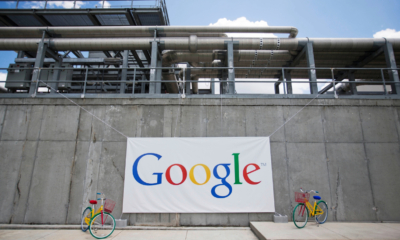MARKETING
Intro to Amazon Non-endemic Advertising: Benefits & Examples

Amazon has rewritten the rules of advertising with its move into non-endemic retail media advertising. Advertising on Amazon has traditionally focused on brands and products directly sold on the platform. However, a new trend is emerging – the rise of non-endemic advertising on this booming marketplace. In this article, we’ll dive into the concept of non-endemic ads, their significance, and the benefits they offer to advertisers. This strategic shift is opening the floodgates for advertisers in previously overlooked industries.
While endemic brands are those with direct competitors on the platform, non-endemic advertisers bring a diverse range of services to Amazon’s vast audience. The move toward non-endemic advertising signifies Amazon’s intention to leverage its extensive data and audience segments to benefit a broader spectrum of advertisers.
Endemic vs. Non-Endemic Advertising
Let’s start by breaking down the major differences between endemic advertising and non-endemic advertising…
Endemic Advertising
Endemic advertising revolves around promoting products available on the Amazon platform. With this type of promotion, advertisers use retail media data to promote products that are sold at the retailer.
Non-Endemic Advertising
In contrast, non-endemic advertising ventures beyond the confines of products sold on Amazon. It encompasses industries such as insurance, finance, and services like lawn care. If a brand is offering a product or service that doesn’t fit under one of the categories that Amazon sells, it’s considered non-endemic. Advertisers selling products and services outside of Amazon and linking directly to their own site are utilizing Amazon’s DSP and their data/audience segments to target new and relevant customers.
7 Benefits of Running Non-Endemic Ad Campaigns
Running non-endemic ad campaigns on Amazon provides a wide variety of benefits like:
Access to Amazon’s Proprietary Data: Harnessing Amazon’s robust first-party data provides advertisers with valuable insights into consumer behavior and purchasing patterns. This data-driven approach enables more targeted and effective campaigns.
Increased Brand Awareness and Revenue Streams: Non-endemic advertising allows brands to extend their reach beyond their typical audience. By leveraging Amazon’s platform and data, advertisers can build brand awareness among users who may not have been exposed to their products or services otherwise. For non-endemic brands that meet specific criteria, there’s an opportunity to serve ads directly on the Amazon platform. This can lead to exposure to the millions of users shopping on Amazon daily, potentially opening up new revenue streams for these brands.
No Minimum Spend for Non-DSP Campaigns: Non-endemic advertisers can kickstart their advertising journey on Amazon without the burden of a minimum spend requirement, ensuring accessibility for a diverse range of brands.
Amazon DSP Capabilities: Leveraging the Amazon DSP (Demand-Side Platform) enhances campaign capabilities. It enables programmatic media buys, advanced audience targeting, and access to a variety of ad formats.
Connect with Primed-to-Purchase Customers: Amazon’s extensive customer base offers a unique opportunity for non-endemic advertisers to connect with customers actively seeking relevant products or services.
Enhanced Targeting and Audience Segmentation: Utilizing Amazon’s vast dataset, advertisers can create highly specific audience segments. This enhanced targeting helps advertisers reach relevant customers, resulting in increased website traffic, lead generation, and improved conversion rates.
Brand Defense – By utilizing these data segments and inventory, some brands are able to bid for placements where their possible competitors would otherwise be. This also gives brands a chance to be present when competitor brands may be on the same page helping conquest for competitors’ customers.
How to Start Running Non-Endemic Ads on Amazon
Ready to start running non-endemic ads on Amazon? Start with these essential steps:
Familiarize Yourself with Amazon Ads and DSP: Understand the capabilities of Amazon Ads and DSP, exploring their benefits and limitations to make informed decisions.
Look Into Amazon Performance Plus: Amazon Performance Plus is the ability to model your audiences based on user behavior from the Amazon Ad Tag. The process will then find lookalike amazon shoppers with a higher propensity for conversion.
“Amazon Performance Plus has the ability to be Amazon’s top performing ad product. With the machine learning behind the audience cohorts we are seeing incremental audiences converting on D2C websites and beating CPA goals by as much as 50%.”
– Robert Avellino, VP of Retail Media Partnerships at Tinuiti
Understand Targeting Capabilities: Gain insights into the various targeting options available for Amazon ads, including behavioral, contextual, and demographic targeting.
Command Amazon’s Data: Utilize granular data to test and learn from campaign outcomes, optimizing strategies based on real-time insights for maximum effectiveness.
Work with an Agency: For those new to non-endemic advertising on Amazon, it’s essential to define clear goals and identify target audiences. Working with an agency can provide valuable guidance in navigating the nuances of non-endemic advertising. Understanding both the audience to be reached and the core audience for the brand sets the stage for a successful non-endemic advertising campaign.
Conclusion
Amazon’s venture into non-endemic advertising reshapes the advertising landscape, providing new opportunities for brands beyond the traditional ecommerce sphere. The blend of non-endemic campaigns with Amazon’s extensive audience and data creates a cohesive option for advertisers seeking to diversify strategies and explore new revenue streams. As this trend evolves, staying informed about the latest features and possibilities within Amazon’s non-endemic advertising ecosystem is crucial for brands looking to stay ahead in the dynamic world of digital advertising.
We’ll continue to keep you updated on all things Amazon, but if you’re looking to learn more about advertising on the platform, check out our Amazon Services page or contact us today for more information.







![How AEO Will Impact Your Business's Google Visibility in 2026 Why Your Small Business’s Google Visibility in 2026 Depends on AEO [Webinar]](https://articles.entireweb.com/wp-content/uploads/2026/01/How-AEO-Will-Impact-Your-Businesss-Google-Visibility-in-2026-400x240.png)
![How AEO Will Impact Your Business's Google Visibility in 2026 Why Your Small Business’s Google Visibility in 2026 Depends on AEO [Webinar]](https://articles.entireweb.com/wp-content/uploads/2026/01/How-AEO-Will-Impact-Your-Businesss-Google-Visibility-in-2026-80x80.png)









